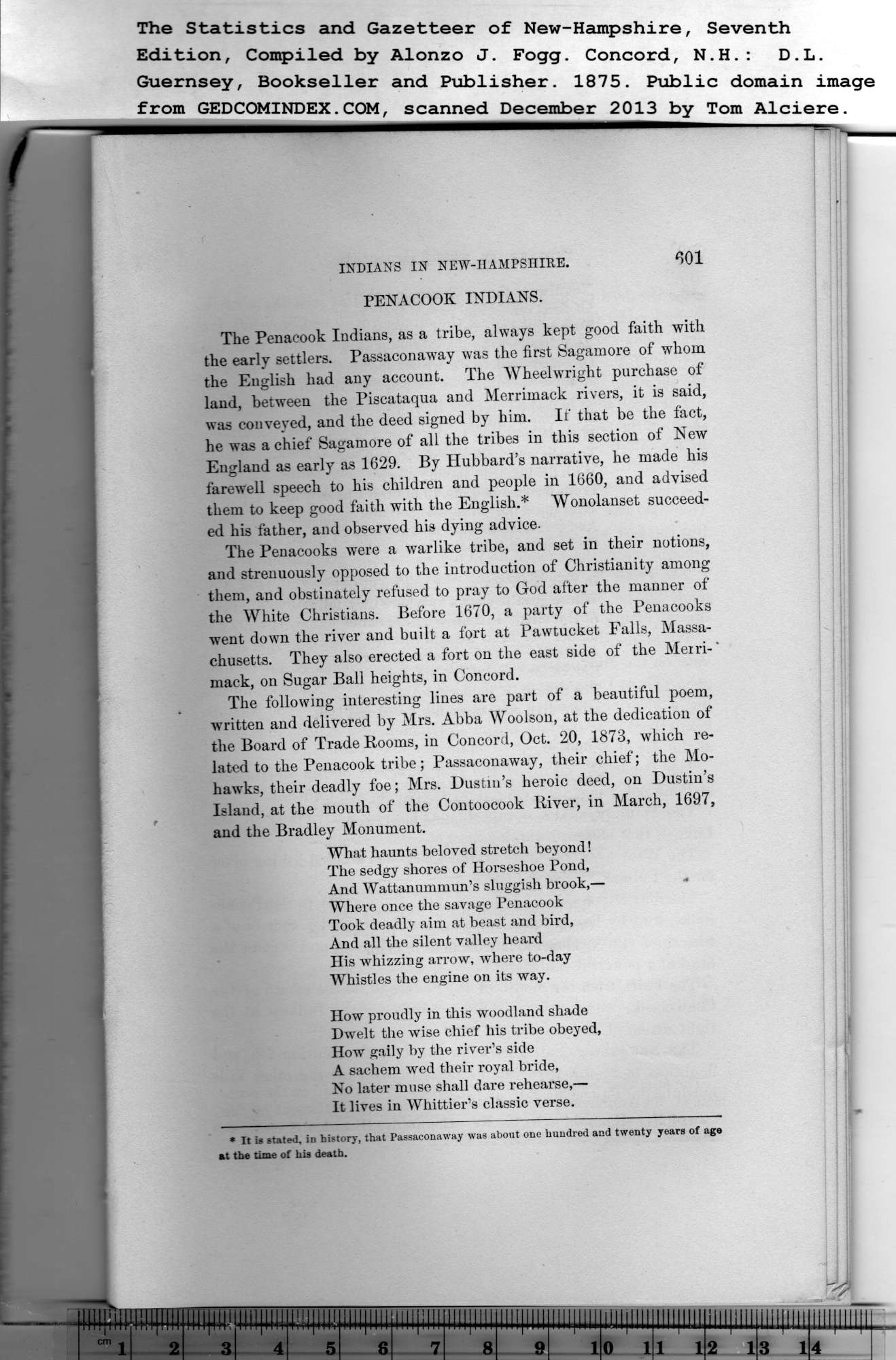|
601
INDIANS IN NEW-HAMPSHIRE.
PENACOOK INDIANS.
The Penacook Indians, as a tribe, always kept good faith with
the early settlers. Passaconaway was the first Sagamore of whom
the English had any account. The Wheelwright purchase of
land, between the Piscataqua and Merrimack rivers, it is said,
was conveyed, and the deed signed by him. If that be the fact,
he was a chief Sagamore of all the tribes in this section of New
England as early as 1629. By Hubbard’s narrative, he made his
farewell speech to his children and people in 1660, and advised
them to keep good faith with the English.* Wonolanset succeed-
ed his father, and observed his dying advice.
The Penacooks were a warlike tribe, and set in their notions,
and strenuously opposed to the introduction of Christianity among
them, and obstinately refused to pray to God after the manner of
the White Christians. Before 1670, a party of the Penacooks
went down the river and built a fort at Pawtucket Falls, Massa-
chusetts. They also erected a fort on the east side of the Mem-'
mack, on Sugar Ball heights, in Concord.
The following interesting lines are part of a beautiful poem,
written and delivered by Mrs. Abba Wooison, at the dedication of
the Board of Trade Rooms, in Concord, Oct. 20, 1873, which re-
lated to the Penacook tribe; Passaconaway, their chief; the Mo-
hawks, their deadly foe; Mrs. Dustin’s heroic deed, on Dustin’s
Island, at the mouth of the Contoocook River, in March, 1697,
and the Bradley Monument.
What haunts beloved stretch beyond!
The sedgy shores of Horseshoe Pond,
And Wattanumnmn’s sluggish brook,— "
Where once the savage Penacook
Took deadly aim at beast and bird,
And all the silent valley heard
His whizzing arrow, where to-day
Whistles the engine on its way.
IIow proudly in this woodland shade
Dwelt the wise chief his tribe obeyed,
How gaily by the river’s side
A sachem wed their royal bride,
No later muse shall dare rehearse,—
It lives in Whittier’s classic verse.
* It is stated, in history, that Passaconaway was about one hundred and twenty years of age
at the time of his death.
|
MU
IIMII |
|
ihllNliilllllllilTini |
|
pm |
ini|!ii! |
lllllllll |
iiimiii |
|
iiiiiiiii |
iiiiiiiii |
lillllllll |
lllllll |
|
ll 4 3| |
M M |
8 |
7 |
8 |
a |
i| |
0 1 |
i i |
2 1 |
iiLpI
3 |
|
14
PREVIOUS PAGE ... NEXT PAGE
This page was written in HTML using a program written in Python 3.2
| 